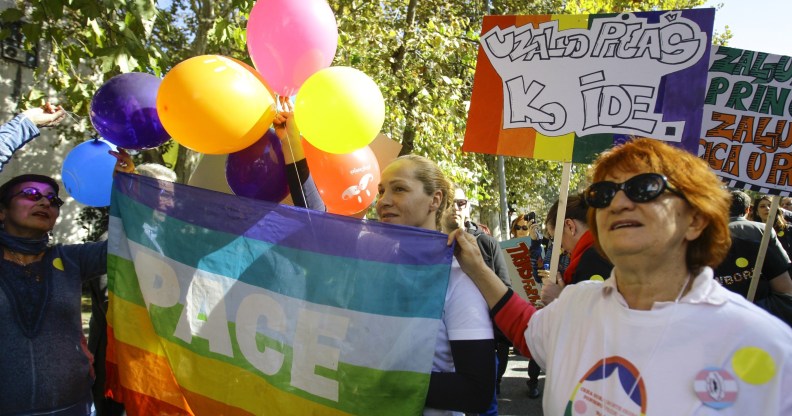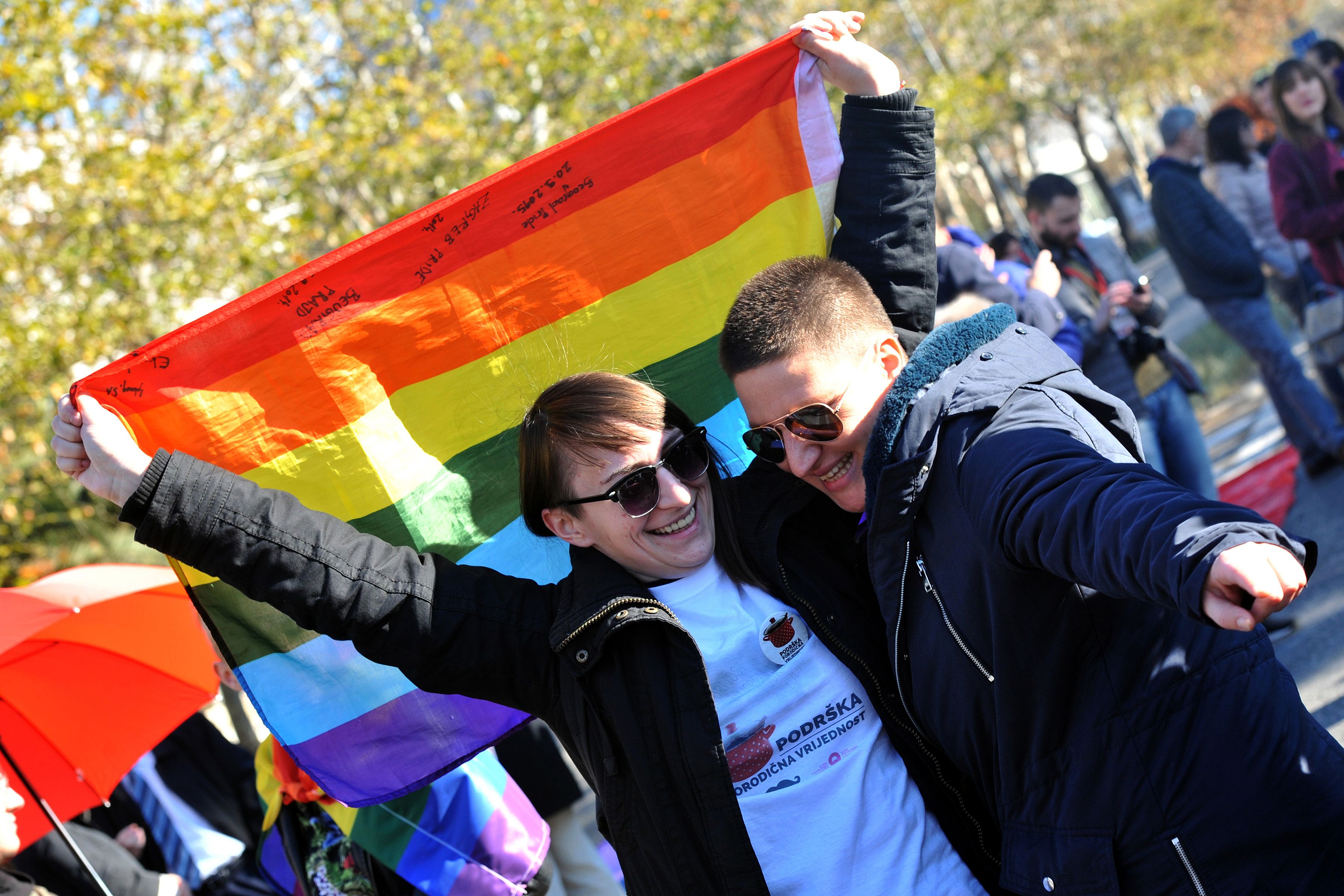Montenegro politicians block law recognising same-sex unions

Montenegrin activists march during Gay Pride parade in 2014. (Samir Yordamovic/Anadolu Agency/Getty)
Politicians in Montenegro blocked a proposed law on Wednesday (July 31) which would have legally recognised same-sex unions in the country.
Although the law would have recognised same-sex couples, they would still not have been given all of the same rights as opposite-sex married couples.
Montenegro’s Human and Minority Rights Ministry drafted the law last year and received huge backlash from the Eastern Orthodox Church and conservative politicians.
The country has a multi-party system, meaning that government is made up of many parties. The Democratic Party of Socialists (DPS) is the main governing party and it backed the reform to recognise same-sex unions.
However, according to BalkanInsight, smaller parties within the ruling coalition opposed the law and blocked it from passing.
Jovan Vucurovic, deputy of the conservative Democratic Front which was the main opposing party, told BalkanInsight: “After this law a law on adoption of children by LGBT population will follow. This was the case in all EU countries.
“When we come to a position to decide, we will not even take this into consideration.”

Montenegrin activists hold a rainbow flag during the Gay Pride parade in Podgorica in 2016. (SAVO PRELEVIC/AFP/Getty Images)
The Equal Rights Association said LGBT+ people in Montenegro are “forced to live as second-class citizens”
According to Montenegrin newspaper Vijesti, Danijel Kalezic of the LGBTI Equal Rights Association (ERA) for Western Balkans and Turkey said in a statement: “Due to the irresponsibility of the majority of Montenegrin MPs, we are still forced to live as second-class citizens.”
He continued: “Failure to pass the law means that the person we love cannot visit us in the hospital because it is not legally recognized as part of the family.
“Many citizens of our country are still without basic social rights on the basis of living together.
“If we are unemployed, we cannot exercise any right or benefit on the basis of living together with the person we love, nor the right to health care.”
In 2018 LGBTI ERA study, 51 percent of LGBT+ people from Montenegro said they were closeted, 76 percent said they avoided holding hands with a same-sex partner in public for safety reasons and 92 percent said discrimination on grounds of sexual orientation was common in the country.
83 percent said that the possibility of marrying or registering a partnership would allow for more comfortable living as an LGBT+ person in Montenegro.

